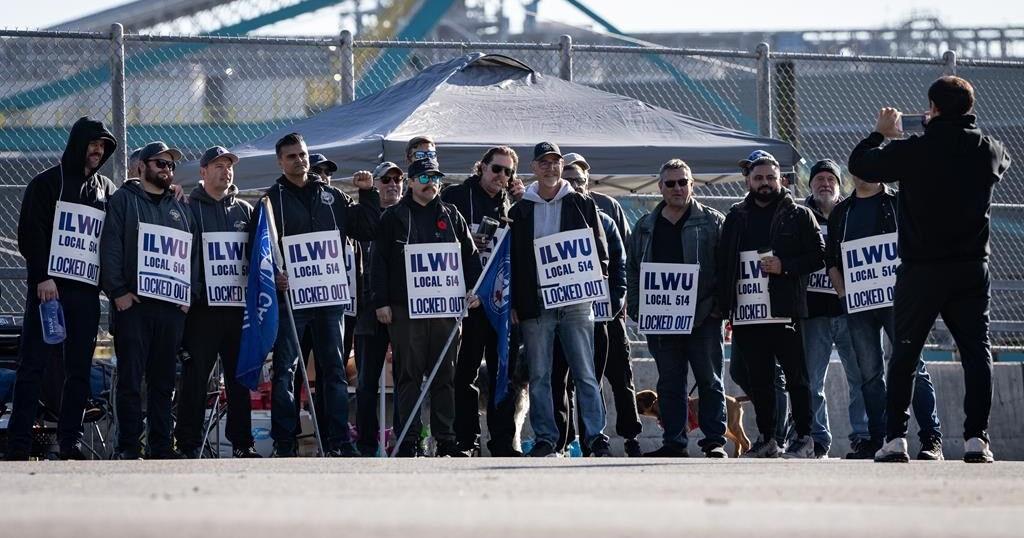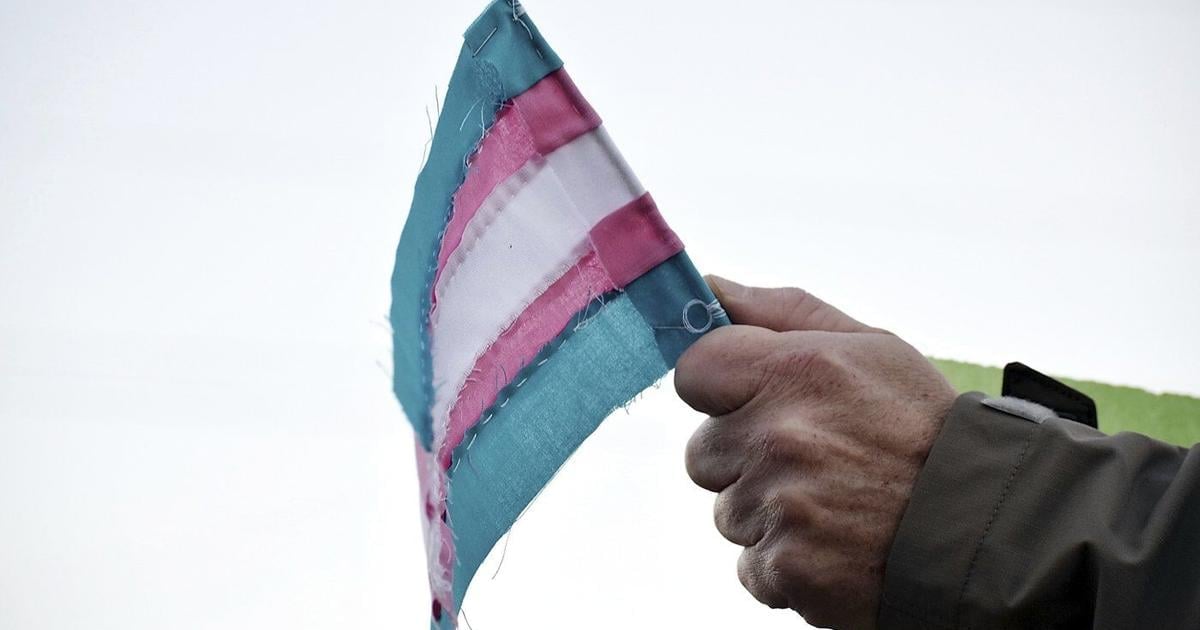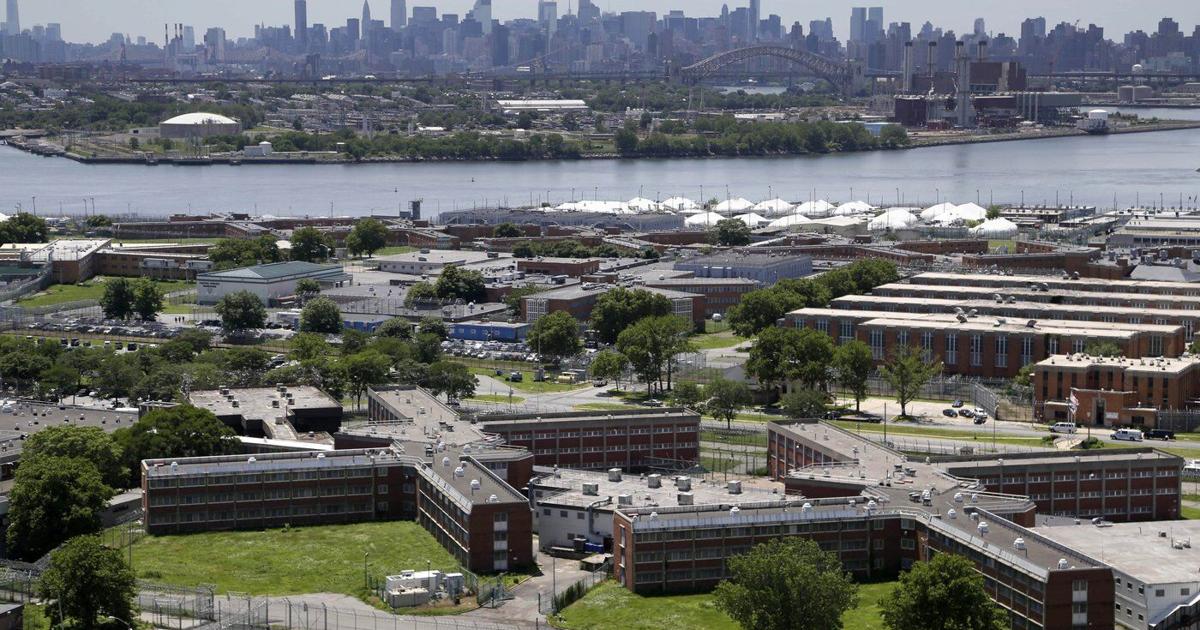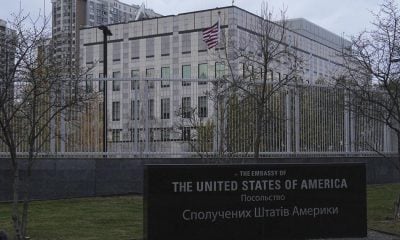VANCOUVER – Canadian retailers say their frustration is growing with the lack of movement to resolve disruptions at Canada’s two largest ports, including silence surrounding a lockout at British Columbia ports that is into its fourth day.
Matt Poirier with the Retail Council of Canada says there “doesn’t seem to be any urgency” in resolving the disputes in B.C. and Quebec and it may result in empty shelves as the holiday season approaches.
Poirier describes the situation as a “triple-threat” of labour disruptions, referencing uncertainty at Canada Post, the ongoing lockout of unionized workers at B.C. ports including Vancouver, as well as a strike that has closed two container terminals indefinitely in Montreal.
Poirier says retailers could face a “staggering” impact on the holiday season “where every delivery counts,” with four days of port disruptions potentially equating to about a month in delays due to ripples in the supply chain.
In B.C., the lockout by the BC Maritime Employers Association at container port facilities across the province is being met with silence from all sides.
The employers say no talks have taken place or are scheduled with either mediators or the union representing about 700 foremen — a situation described as unusual by labour expert Mark Thompson, who is a retired University of British Columbia professor.
He says it appears the employers are “playing hardball” by making what they call a final offer to the union, but the federal government has been hesitant to intervene beyond mediation because the right to strike is protected in the Canadian constitution.
“I think we’re in a kind of dance out there,” Thompson said. “Somebody’s waiting for the other side to say chicken, and it hasn’t happened yet.”
The International Longshore and Warehouse Union Local 514 has said there are no updates on the situation and picketers remain at terminal sites across B.C.
A spokesman at the office of federal Labour Minister Steven MacKinnon referred questions on Wednesday to a social media post by the minister on Nov. 2.
MacKinnon said in the post on social media platform X, formerly known as Twitter, that he spoke with both sides of the dispute and emphasized “it is the responsibility of the parties to reach an agreement,” a point he repeated on Monday in question period at Parliament.
The dispute over issues such as port automation’s effect on unionized workers has been simmering since last year when the previous agreement between employers and the union expired in March 2023.
It comes on the heels of a separate dispute last year between employers and cargo workers that resulted in a strike that froze B.C. ports for 13 days.
The Port of Vancouver — the largest in Canada — has also experienced a disruption involving railways in August and another with grain terminal workers in September.
Meanwhile, Vancouver Fraser Port Authority president and CEO Peter Xotta was set to speak at a pre-scheduled event on the state of the port at the Greater Vancouver Board of Trade.
This report by The Canadian Press was first published Nov. 7, 2024.























